Biographies
| Land Team | Ran Fiennes | Charlie Burton | Oliver Shepard | |
| Base Camp/ Reserves |
Ginny Fiennes | Simon Grimes | Anto Birkbeck | David Mason |
| Laurence Howell | ||||
| Air Crew | Giles Kershaw | Karl Zberg | Gerry Nicholson | |
| Ship’s Crew | Les Davis | Anton Bowring | Cyrus Balaporia | John Parsloe |
| Dave Peck | Ken Cmaeron | Mark Williams | Jim Young | |
| Howard Wilson | Nigel Cox | Terry Kenchington | Eddie Pike | |
| Jill Bowring | Martin Weymouth | David Hicks | Chris McQuaid | |
| Lesley Rickett | Admiral Otto Steiner | David Ramsay | Poul Andersson | |
| Support Staff | Anthony Preston | Janet Cox | Joan Cox | Colin Eales |
| Roger Tench | Margaret Davidson | Paul Clark | ||
| Executive Committee / Board of Directors | ||||
 Ran Fiennes – Expedition Leader / Ice Team
Ran Fiennes – Expedition Leader / Ice Team
Ran was born in Windsor (outside the Castle) in 1944 and was educated first in South Africa and then, big change, at Eton. Failing to get enough ‘O’ Levels for a regular commission, he went to Mons Cadet School in Aldershot and then spent a period from 1961 to 1970 in the Royal Scots Greys. Much of this time was spent posted to the SAS and the Sultan’s Armed Forces in Omar fighting Marxist terrorists.
A number of expeditions followed, including The White Nile Hovercraft Expedition (1969), the Jostedals Parachute Expedition (1970) and the British Headless Valley Expedition (1971).
He then joined 21 SAS (TAVR) in the Duke of York’s Barracks in London, from where the expedition was launched in 1972.
 Charlie Burton – Ice Team / Mechanic / Cook
Charlie Burton – Ice Team / Mechanic / Cook
Charlie’s father was in the Royal Navy, and Charlie was born in South Africa in December 1942, where his mother and brother lived for many years. Charlie was educated at Millfield School in Street, Somerset. He was definitely NOT academically inclined, however he excelled at all sports. He loved his school years, and lived for his rugger, golf, water polo, and boxing and by all accounts was forgiven many (and there were a lot) misdemeanours, on the strength of his contribution to the many school sports teams.
On leaving school in 1961 he joined the Army and served in the Middle East, Northern Ireland, Malta and Germany. His father urged him to take a commission, but Charlie realised that would mean lots and lots of work and less and less sport. Much to his father’s chagrin he remained happily in the ranks for his entire service career, though he did briefly make corporal for a few months!!! He won many sporting titles whilst in the army.
On leaving the Army in 1967 he had various jobs, mostly in Security but in 1971 decided South Africa seemed like a good idea and took himself back to the land of his birth where he admits he “sort of worked” but actually it was really a sabbatical, which meant he spent four years thoroughly enjoying himself.
Returning to England in 1975 he took a job working behind the bar at The Admiral Codrington pub in Chelsea, and it was there that his brother Richard introduced him to Ran Fiennes – thence embarking on the biggest adventure of his life!
Charlie and Twink were married in Sydney, Australia in April 1981 during the Transglobe Expedition after the successful crossing of Antarctica and prior to the crossing of the Arctic. see Obituary
 Oliver Shepard – Ice Team / Mechanic / Medic / Meteorologist (Antarctica)
Oliver Shepard – Ice Team / Mechanic / Medic / Meteorologist (Antarctica)
Born in 1946, Oliver went to Prep school in Ascot, followed by Eton College, where he first met Ran. In 1964, he was commissioned into the Coldstream Guards, after which he joined 21 Special Air Service Regiment ( Artists Rifles).
In civilian life, he started his career with the Charrington Brewery in the East End of London in 1968, and stayed there until 1975, when he joined Ran and Ginny at the Duke of York Barracks, King’s Road, Chelsea.
Between 1975 and 1979, TGE evolved, with the time being spent on numerous training courses, and the obtaining of sponsors for the vast amount of equipment needed. To keep body and soul together, he and Charlie worked part time in a local pub, the Admiral Codrington.
In 1975 they went to Scotland, followed by Exercise Greenland in 1976, and The British North Pole Expedition in 1977. Together with Ran and Charlie, he was in the Travel Group of the Expedition, acting as Doctor/Dentist/Scientist, and Mechanic. Due to family problems, he returned to the UK after the South Pole crossing,and worked in the office in London. Married to Rebecca, he lives in London, within sight of the Barracks
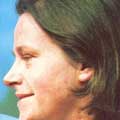 Ginny Fiennes – Founder / Organiser / Polar Base Leader / plus i/c all Communications
Ginny Fiennes – Founder / Organiser / Polar Base Leader / plus i/c all Communications
Ginny was born in Godalming in 1947 and spent all her youth in West Sussex. Educated (after a fashion) in Hastings and Eastbourne. After secretarial college in Winchester, she worked for the National Trust for Scotland in Wester Ross, and then, after marrying Ran in 1970, thought of the concept of the Transglobe Expedition in 1972. She and Ran were sponsored by the SAS Group to set up an office in the attic rifle range at the Duke of York’s Barracks and they began to recruit in 1972. Ginny set up, organised and ran all the polar bases (Antarctic and Arctic). Additionally, all the polar communications and the comms for the numerous links were Ginny’s brainchild. She worked at the expedition non-stop until 1985, when all the Expedition’s debts were finally paid off. see Obituary
 Simon Grimes – Base Camp Mechanic / Cook
Simon Grimes – Base Camp Mechanic / Cook
Simon was born in England and trained as a civil engineer.
After working as an outdoor pursuits instructor, with a couple of seasons climbing in the Alps, he joined the expedition as Base Camp cook, mechanic, medic, and general dogsbody, helping the preparations in London for two years before the Greenwich departure. His role is to keep the generators running and Ginny fed as she keeps radio watch for the Ice Group, helping the air crew load fuel and supplies to keep the them on the move.
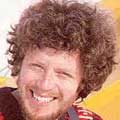 Laurence Howell – Second Radio Operator (Arctic)
Laurence Howell – Second Radio Operator (Arctic)
Born in Surrey 1957 and educated in London, Laurence met up with Transglobe in Antarctica whilst doing a 33 month stint as a radio op on Adelaide Island.
He already knew Giles and Gerry having supported communications for the 1978 summer flying season for the British Antarctic survey. Near daily radio contacts with Ginny at Borga and supporting long range communications to the Transglobe aircraft on its long flight from the UK have led to an undeniable offer from Ran for more cold finger treatment at the opposite end of the globe. Leisure pursuits include dog sledging, skiing, writing and meteorology. He is also known to be an active radio ham sporting the callsign G4DMA. Whilst on Transglobe Laurence is on unpaid leave from British Telecom International.
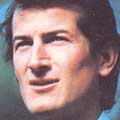 David Mason – Ice Team Reserve / Logistics Coordinator
David Mason – Ice Team Reserve / Logistics Coordinator
Before joining Transglobe, David spent nine years as a commissioned officer in the British Army with the Welsh Guards, serving in Northern Ireland, Germany and London District, with a two-year secondment to the Sultan of Oman’s Armed Forces where he saw active service in the Dhofar War and was decorated for bravery. On leaving the Army in 1978 he considered himself pretty well unemployable, but met a man in a pub (Ol Shepard) who persuaded him to come and meet Ranulph Fiennes and join Transglobe. His responsibilities on the expedition include the acquisition, packing and dispatching of equipment and supplies to more than 20 remote destinations worldwide, and assisting Ginny in the setting up and manning of four base camps in the Arctic and Antarctic. His interests include ski-ing, shooting, scuba-diving, photography and (of course) travel.
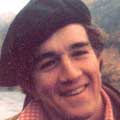 Anto Birkbeck – Ice Team Reserve, Logistics (Antarctica)
Anto Birkbeck – Ice Team Reserve, Logistics (Antarctica)
Anto joined Transglobe in 1979 fresh out of Edinburgh University, where he did a masters in economics. With no previous polar experience, he has worked variously as a builder in the highlands, for the Game Department in Kenya, wine producer in France, farm labourer in Germany and the UK. He’s at home in the great outdoors, the mountains and boats, and an accomplished skier.
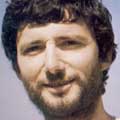 Giles Kershaw – Pilot (Antarctica, N.W. Passage)
Giles Kershaw – Pilot (Antarctica, N.W. Passage)
Since 1976, Giles has established himself as an outstanding Antarctic pilot and has worked regularly with British Antarctic Survey as a Twin Otter pilot. Giles’ navigational skills are legendary. Magnetic compasses are not too efficient so far south. Despite this, Giles joins Transglobe to support and resupply the expedition team on their 2,000 mile crossing of Antarctica from SANAE to McMurdo via the South Pole. Navigation is critical. Ran Fiennes and his colleagues will be like needles in a haystack once they are underway in the vast whiteness of the polar plateau. Giles, with flight engineer Gerry Nicholson will join the expedition twice in Antarctica thus completing the equivalent of two circumnavigations of the world in the process.
When not flying around the South Pole, Giles has a more conventional job flying commercial airliners for Britannia Airways.
 Karl Zberg – Pilot (Arctic)
Karl Zberg – Pilot (Arctic)
Karl Zberg emigrated to Canada from Switzerland as a young man. He has been flying Twin Otter aircraft since 1967. Employed by Bradley Air Services, at Resolute in the Canadian Arctic, Karl originally qualified as an aircraft mechanic and later as a pilot. For the past 12 years he has been flying over the Arctic Ocean – one of the world’s most inhospitable and remote regions for pilots, with poor navigational facilities and an ever changing and treacherous surface below. Last year, Karl’s plane was lost when one of its skis went through the ice. He was lucky to escape.
Karl joins Transglobe as one of the handful of really experienced Arctic pilots. Along with flight engineer, Gerry Nicholson, Karl will resupply Ran Fiennes and Charlie Burton on their journey from Alert to Spitzbergen via the North Pole.
 Gerry Nicholson – Aircraft Engineer
Gerry Nicholson – Aircraft Engineer
On leaving school Gerry joined Beagle Aircraft Limited as an Apprentice, finishing as a ‘Skilled’ (Company term not his) Airframe Fitter in the Experimental and Flight Test Department, (EFTD).
He was then employed as a Skilled Airframe Fitter with a small organisation, Miles Aviation (R & D) Limited, engaged on specialised research and development work for British and American aviation companies.
In 1969 he joined the Corps of the Royal Electrical & Mechanical Engineers as an Aircraft Technician. Following a short but rather brutal (for such a delicate flower – his words) period of basic training, he attended a 48 week Trade training course where he managed to obtain a City & Guilds Aeronautical Engineering Certificate.
Following this he was employed (let loose) as a REME Aircraft Technician. Detached duty theatres included exercises in Kenya, Malawi, Norway, and the Caribbean as well as short detachments throughout the United Kingdom. He also managed a six-month UN tour in Cyprus that just happened to coincide with the Turkish invasion of the Island in 1974 (bad timing).
In 1976 he volunteered for secondment to the British Antarctic Survey as an Aircraft Technician with responsibility for maintaining two de Havilland Twin Otter aircraft in the Antarctic.
From 1979 he was detached, on Adventure Training, to the British Transglobe Expedition as Aircraft technician with responsibility for the maintenance of the expedition Twin Otter aircraft. This involves control of the basic maintenance and modification of the aircraft and providing assistance in obtaining, through sponsorship, all the relevant specialist equipment, fuel, spares and support equipment necessary to operate the aircraft.
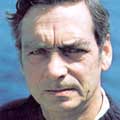 Capt. Les Davis – Principal Master (from Halifax, Nova Scotia to London, Cape Town to Samoa and from New Zealand onwards)
Capt. Les Davis – Principal Master (from Halifax, Nova Scotia to London, Cape Town to Samoa and from New Zealand onwards)
Captain Davis first went to sea in 1947. He worked on tankers before joining The Bowring Steamship Company in 1955. He has visited most parts of the world in his years at sea but rates his voyage on the Benjamin Bowring as one of the most interesting so far. Captain Davis joined Transglobe in 1979, when he delivered the Benjamin Bowring from Halifax, Nova Scotia, to London prior to the ship’s departure from Greenwich in September 1979. Since then he has commanded the ship during various stages of the Expedition, including several months of charter work amongst the Central pacific Islands (while the Expedition Team were crossing Antarctica), the voyage to McMurdo Sound, Antarctica, to collect the team after their successful crossing, and to Spitzbergen to pick the team off the ice after crossing the Arctic Ocean.
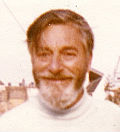 Rear Admiral Otto Steiner – Master (from London to Antarctica and back to Cape Town)
Rear Admiral Otto Steiner – Master (from London to Antarctica and back to Cape Town)
Otto entered the Royal Navy from St Paul’s School as a public school special entry cadet in 1935. He first went to sea in the light cruiser Orion and then in the heavier town-class Southampton. Not content with what the Fleet provided, he joined the newly formed Royal Naval Sailing Association in 1937 before being commissioned as a sub-lieutenant in March 1938. Within a year he was junior officer in the modern destroyer Ilex which with her sister ship Imogen sank U42 in the Western Approaches on 13th October 1939. Otto, was the co-founder and original administrator of the Whitbread Round the World Race. Although he has been retired from the Navy for a number of years, Otto is a keen sailor and has kept his hand in with many small boat voyages. see Obituary
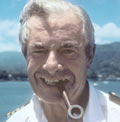 Commander David Ramsay RN Retd. – Master (during Pacific Islands Charter period)
Commander David Ramsay RN Retd. – Master (during Pacific Islands Charter period)
David Ramsay started his Navy career in the 1930’s when he spent 6 years in the Chinese Preventive Service, policing the piracy which was endemic in the China seas. His World War 2 service began on battleships and he survived two direct bomb hits firstly on HMS Wessex off Calais followed by HMS Spartan at the Anzio landings. He lost his left leg as a result of the Spartan bombing and, as a result, was at risk of being relegated from active service – “Damn silly. In Nelson’s time they stumped around on bits of timber. Now I’d got this super tin thing…and they wanted to beach me” Ramsay’s solution was to take sick leave on a friend’s ship – it was a destroyer in the North Atlantic. He came back with a watch-keeper’s certificate, thus proving that he could still do his job. He followed this with command of destroyers and fleet mine sweepers before taking charge of a fleet of motor torpedo boats in Baltic waters. In the late 50s he retired from the Navy and worked for the Ministry of Defence in coastal planning.He joins Transglobe to cover the charter period before the ship returns to Antarctica (McMurdo Sound) with Captain Davis in December 1980.
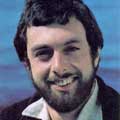 Anton Bowring – Marine Coordinator / Third Officer
Anton Bowring – Marine Coordinator / Third Officer
Anton was born in Surrey in 1950 and was educated at Shrewsbury. In 1967 he joined the Merchant Navy as a navigating cadet on a bulk carrier. Thereafter he spent some months as a crew member on a yacht based in Italy and returned to England to spend a brief spell in the insurance business. Later he joined Small Craft Deliveries Ltd. and became Mate aboard a number of small private and commercial vessels in which capacity he undertook many ocean passages, including the delivery of yachts to the Mediterranean, dredgers to Northern Ireland and a number of tugs, cruising boats and work boats to a host of different destinations, including a fifty five foot shrimp-boat from an Essex shipyard to Chittagong, Bangladesh, a journey of some fourteen thousand miles which lasted four months.
In 1977Antony was employed by a company engaged in oceanographic work and served on an oil rig supply vessel from which he was required to measure the size and drift of icebergs. In 1978 he joined Transglobe and on becoming Marine Coordinator he undertook to locate and negotiate the purchase of the Expedition’s ship. His job involved close liaison between the Expedition team and its headquarters in London on the one hand and the Master, the Crew and the Ship on the other. This includes the securing of sponsored supplies and services for the ship and negotiations with Port Authorities and dockyards.
In April 1981 Antony married Jill McNicol in Sydney, Australia.
 Cyrus Balaporia – Chief Officer
Cyrus Balaporia – Chief Officer
Cyrus was born and educated in Bombay, India. After school he joined a training ship before joining the Shipping Corporation of India as a Navigating Cadet. In 1970 he obtained his 2nd Officers Certificate and shortly afterwards joined British India Steam Navigation Company (later to become part of P&O). In 1972 Cyrus became qualified as Chief Officer and in 1976, at the age of 27, he qualified as Master.
Cyrus joined Transglobe in April 1979 to get away from commercial shipping and to gain some experience in ice navigation. On board Benjamin Bowring Cyrus is responsible for the daily running of the ship. He also looks after all the Meteorological equipment on board and is responsible for producing daily weather information for the World Meteorological Organization.
His hobbies are electronics and working with computers as well as photography. After the Expedition, he hopes to join a British Antarctic Survey vessel or alternatively, to join another Expedition in Polar Regions
 John Parsloe – First Officer
John Parsloe – First Officer
John grew up on Arthur Ransome books and left school at 16 to see the world as an apprenticed cadet with the Union Steam Ship Company of New Zealand. He remained with USSCo till he passed his First Mate’s Certificate, sailing to Australia, the Pacific Islands, North America and Asia.
After a period ashore at university he joined the New Zealand Government Research Vessel “Tangaroa”. While Acting Mate aboard her in the Tokelau Islands, he saw the”Benjamin Bowring” and was aware of the publicity to do with the Transglobe Expedition.
Shortly afterwards back in Wellington, he was introduced to Anton Bowring and volunteered to join the “Benjy B” as 3rd Mate/Science Liason Officer for the firthcoming voyage to Antarctica on charter to the New Zealand Government prior to picking up the Ice Party.
John was later recalled as First Mate to collect the Ice Party on the final leg in the Arctic.
His hobbies are white water kayaking and tramping.
 Dave Peck – Second Officer
Dave Peck – Second Officer
Dave joined the Merchant Navy in 1970 as an apprentice with the New Zealand Shipping Company. Three years later he joined P&O as a Navigating Officer and in 1978 was on board a vessel in Kuwait when he first heard about Transglobe. He instantly wrote to the Expedition’s London office and at the same time resigned from his job with P&O. The following year he was accepted by Transglobe and joined the Benjamin Bowring in London.
Whilst in Abidjan (Ivory Coast) on board the Expedition ship Dave was struck by malaria. Shortly after he recovered, he severely damaged his leg when his trousers got caught in the rotating propeller shaft of one of the ship’s boats. Owing to a multiple fracture of his leg, Dave remained in Cape Town and was only fit enough to rejoin the ship six months later in the central Pacific Island of Funafuti. On board the Benjamin Bowring Dave looks after the Navigation.
He enjoys travel, music, photography, beer and wine.
 Ken Cameron – Chief Engineer
Ken Cameron – Chief Engineer
Ken was born and still lives in Scotland, where his father has a farm on the slopes of Britain’s highest mountain, Ben Nevis. For a year after leaving school, Ken worked as a waiter and barman in hotels before attending engineering college for three years. In 1975 he completed his apprenticeship after two sea voyages and then worked on a variety of ships, including refrigerated cargo vessels, bulk and ore carriers and supertankers. Before joining Transglobe in April 1979, Ken was on an oil tanker, which was nearly as wide as the Benjamin Bowring is long!!
On board Benjamin Bowring Ken is responsible for the operation, maintenance and repair of all mechanical, electrical and hydraulic systems, most of which are as old as himself. In so doing he is responsible for the safe working of the ship. Among his hobbies Ken includes fishing and motorcycling.
 Mark Williams – First Engineer
Mark Williams – First Engineer
Mark has traveled all his life. He was born in Hamilton, New Zealand and at the age of 11 years, set off with his parents and sisters on a voyage to the Pacific Islands, Australia, New Guinea, Indonesia, East Africa, South America and Britain.
In Britain he passed the necessary exams to join the Shaw Saville and Albion Company as an engineer cadet officer aboard passenger ships, refrigerated cargo vessels and bulk carriers. At 22 years, Mark had obtained his 2nd Class Engineers Certificate and during the course of the Transglobe Expedition he passed his 1st Class Certificate. Despite all this, Mark has had time to work with his parents on yacht deliveries and as a foreman on a building site.
Mark joined Transglobe in August 1979 to have a final fling at adventure before settling down to what he calls a “mundane” life with his own business in New Zealand.
On the Benjamin Bowring Mark’s work involves the maintenance and running of all mechanical, electrical and refrigeration equipment in association with the two other engineers. His interests include yoga, karate, sailing, hang gliding, rock climbing, skiing, travel and building cars.
 Jim Young – First Engineer
Jim Young – First Engineer
Jim is from near Dunedin, New Zealand, and like Mark Williams, joined Transglobe to enjoy a change from regular sea faring. He holds a 2nd Class Engineers Certificate and was employed by Furness Withy before joining the Benjamin Bowring. Jim enjoys a number of outdoor pursuits including trial biking. He has his 500cc bike on board and enjoys ‘taking off’ when the opportunity permits.
 Howard Willson – Third Engineer
Howard Willson – Third Engineer
After leaving school, Howard joined the Royal Navy and worked on both nuclear and diesel submarines.
In 1976 he joined Shaw Saville and went to sea on passenger and cargo vessels and visited many parts of the world. In addition to seafaring, Howard has also put his engineering skills to other uses such as crane erecting. In 1974 he walked the length of the East Coast of Australia, and now with Transglobe, spends much of his time demonstrating his skills at walking on water with the Expedition’s special water shoes (which will be used in the Arctic for crossing open leads in the ice).
Howard joined Transglobe in August 1979 and helps his colleagues in the engine room. His many duties also include making spare parts on the ship’s lathe and attending to the welding jobs on board. Some of his hobbies are photography, reading, scuba diving and music.
 Nigel Cox – Radio Officer
Nigel Cox – Radio Officer
Nigel comes from Dundalk, Ireland. At the age of 17 he left home and went to Liverpool to start his training in Marine Radio and Radar Electronics. To earn himself pocket money he also worked at night in a wine bar. After three years at college, Nigel succeeded in passing his exams and was thus qualified to go to sea.
His voyage on the Benjamin Bowring is his first experience at sea, and as well as giving him more than enough practice at radio communications, it is providing Nigel with an opportunity to see the more remote parts of the world.
Among his duties on board, Nigel is responsible for maintaining all the electronic navigation aids as well as his highly sophisticated radio communications equipment. His hobbies are music, volleyball, badminton and hockey.
 Terry Kenchington – Bosun
Terry Kenchington – Bosun
Terry joined the Merchant Navy in 1966. His first voyage was as deck-boy on board the R.M.S. Queen Elizabeth. Since then he has worked for many companies, including Cunard, Shaw Saville, Shell and Bristol City Lines. He has visited all parts of the world including, Labrador, Newfoundland and British Columbian ports, and as a result of this has a special affection for Canada, of which he hopes to see more when the Expedition is over.
In 1975 Terry was serving on board a vessel which was involved in the rescue of a Korean fishing vessel, which suffered an explosion in storm conditions off the west coast of the United States. His ship the Anco Tempter was en route for Japan and with US Coast Guard Air reconnaissance all but two of the Korean crew were rescued.
On board the Benjamin Bowring Terry looks after all the maintenance work on deck. His hobbies are reading, meeting people, sampling ales and wines and collecting records by Woody Guthrie and Cisco Houston. When asked for his reasons for joining Transglobe he could only say that he had “forgotten!”
 Eddie Pike – Carpenter / Bosun’s Mate
Eddie Pike – Carpenter / Bosun’s Mate
Eddie first went to sea in 1956 and worked for several different shipping companies before joining The Bowring Steamship Company Ltd. in 1971. During the summer of 1979 Eddie was seconded by Bowring to help prepare the Benjamin Bowring for her three year voyage. As a result of this he became enthusiastic about the Expedition and got his employers to agree to let him join the Expedition for the three year period.
His job on board the Benjamin Bowring involves the making of all sorts of necessities, from furniture to sledges and picture frames. He also attends to the upkeep of all woodwork on the ship, both on deck and in the accommodation. Among his many talents, Eddie also takes the role of Neptune, whenever the Benjamin Bowring crosses the Equator. His hobbies are reading, photography, golf and crossword puzzles. see Obituary.
 Jill Bowring – Cook
Jill Bowring – Cook
Jill was subjected to what she calls an utterly dull and normal schooling, with not infrequent reprimands for day-dreaming. Having left school, and with a plan to go to South America, she managed to raise enough money to get a ferry ride to France. After a month of traveling through Europe, Jill arrived in Athens, where she met friends and remained for a year before returning home.
Among her previous jobs Jill has worked on a building site and in the Civil Service, ending up as an executive officer in the Patents and Copyright Office of the Department of Trade.
She joined Transglobe in June 1979 to fulfill her ambition to travel. On board Benjamin Bowring Jill prepares all meals and is responsible for ensuring that enough food stores are on board before the ship sails from each port.
Jill’s hobbies are swimming in coral reefs, flowers and plants, handicrafts, squash, photography, the study of physical geography and wild life. Jill and Marine Coordinator Anton Bowring were married in Sydney shortly after returning from Antarctica earlier this year. They hope that after the Expedition they will have a chance to see more of the world before settling down to home life.
 Martin Weymouth – AB Seaman
Martin Weymouth – AB Seaman
Martin first went to sea in 1973. Since then he has worked with a number of shipping companies in all parts of the world. In 1973 he was on a cargo vessel which caught fire in the mid-Atlantic and as a result he spent two days in a lifeboat before being rescued. Before the Expedition started, Martin was the only member of Transglobe to have visited Antarctica as he had previously worked on the British Antarctic Survey Vessels around the Antarctic Peninsular. Among the interesting places Martin has visited are Grytviken (South Georgia), Cape Town, parts of Argentina and Leighton Buzzard (his home town in England)!
Martin joined Transglobe in 1979 and looks after cargo gear on board the Benjamin Bowring as well as working on deck at all the chores which are necessary to keep the ship in good order. His hobbies are travel, (loud) music, sport, the Spanish language and adventure. When the Expedition is over Martin and his fiancée Annie, also on board, hope to travel around Europe and visit Venezuela before settling down to live in New Zealand.
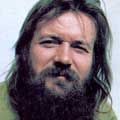 David Hicks Steward – Deckhand
David Hicks Steward – Deckhand
Before joining Transglobe in August 1979, David was based in Amsterdam and worked as a photographer, specializing in the making of holograms.
Since his school days he has had a colourful career and a variety of jobs, including managing a Taverna while living in Greece for two years and later working on the Sail Training ship Regine Maris. David has lectured in Art Colleges on the subject of photography and finally joined Transglobe to see more of the world.
On board the Benjamin Bowring David looks after stores and works on deck. He also ensures that stocks of beer, spirits and tobacco are not running out and is often to be seen serving drinks on the occasions when there is something on board worth celebrating.
 Chris McQuaid – Scientific Officer (Marine Biologist)
Chris McQuaid – Scientific Officer (Marine Biologist)
Chris was born and educated in Northern Ireland. Having graduated in Zoology and Botany he completed his Ph. D. in Zoology at Cape Town University. Since then he has completed a number of research studies on the inter-tidal zones of rocky beaches, the ecosystems in estuaries, and a detailed study of desert snails. In addition to this he has also taught at a school and worked in a brewery.
On board the Benjamin Bowring Chris, together with Lesley Rickett is carrying out studies on the biomass and distribution of zoo or macro-plankton, the distribution of sea birds and mammals and also sea water pH analyses (which involves studying the photosynthetic activity of phytoplankton).
Chris joined the Transglobe Expedition in Cape Town in 1980 to continue his research work and visit the Polar Regions where his studies may best be carried out. After the Expedition, when he has completed a series of scientific papers on Transglobe’s scientific programme, he hopes to obtain a post-doctoral research fellowship and travel to the other parts of the world which interest him.
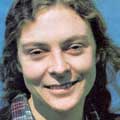 Lesley Rickett – Second Scientist (Oceanographer)
Lesley Rickett – Second Scientist (Oceanographer)
Lesley graduated from the University Of Witwatersrand, Johannesburg in 1978, followed by 2 years work in the Oceanography Department of the University of Cape Town. She first went to sea in 1979 aboard the South African research vessel Thomas B. Davey on a number of voyages involving marine chemical and geophysical research work.
She joined the Benjamin Bowring in 1980 when the Expedition reached Cape Town and with Dr McQuaid undertook oceanographic and marine biological research in Antarctic waters. A year later Lesley rejoined the ship to continue the research work during the second visit to Antarctica. She signed on as second scientist and is currently working on a number of programmes on the Expedition’s behalf. When not at her studies, Lesley enjoys reading, needlework and knitting among other hobbies.
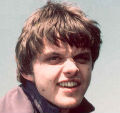 Poul Andersson – Planning, Marine Dept. / Ship’s crew
Poul Andersson – Planning, Marine Dept. / Ship’s crew
Paul was from Denmark. He heard about the expedition and applied for a job. He came to London at the age of 22 in the summer of 1978 and joined Anton Bowring in the search for the ship, crew and supplies. Within months he had learned enough English to liaise with sponsors and crew applicants. It was Poul who first identified the Kista Dan as the perfect vessel for the expedition’s needs .Two years earlier, he had sailed to Antarctica on the Danish polar vessel Nelle Dan (a larger and more modern vessel of the Lauritzen fleet). Poul joined the Benjamin Bowring (ex Kista Dan) for the delivery voyage from Halifax, Nova Scotia to Milwall Docks, London. But very sadly, some weeks later, while working on the ship, Paul developed chest pains. He was taken to hospital where he suffered a heart attack and died within a week. He was just 23 years old. It was always intended that Paul should join the ship’s crew for the expedition. He was also singled out as a possible Base Camp team member. In the event, the ship’s bell was engraved with his name and, at the completion of the expedition, it was presented to his family.
 Anthony Preston – Expedition Secretary
Anthony Preston – Expedition Secretary
Anthony started flying at the age of 17 in dH 82 Tiger Moth and Auster while still at school in Suffolk, before joining the RAF in 1956. In 1963 he went to South Africa and then Rhodesia as an engineer, flying himself round Kenya, Tanganyika and Uganda before returning to England and then Paris.
In 1974 he moved to Italy to write a book. In 1975 he married Miranda and moved to New York State. The following year they both flew in a Cessna 26 from Norfolk to Khartoum via Cairo and Luxor with a crop-spraying company.
When asked how he joined the Expedition, he replied, Saw job ad in Officers Association building in Belgrave Square (was it?) and applied. Said I liked Mars bars so got to interview. Great Leader met me at Hammersmith U/G station. We drove to house in Barnes in battered Mini van, running out of fuel on the way. Was this the great explorer? It surely was. They decided to call me Base Commander, which I thought sounded very fine. Later it became Expedition Secretary. Son Alexander was born during the expedition. It was a great event within a great event, neither ever to be forgotten.
 Janet Cox – Office Manager
Janet Cox – Office Manager
Janet says she was roped into the Transglobe office because she is Joan Cox’s daughter! Joan was already helping at the Duke of York’s Barracks while Janet was a student at St James’s Secretarial College in nearby Gloucester Road. Janet was called in to give part time secretarial help. By the time the expedition left Greenwich, Janet was working full-time as Anthony Preston’s P.A. in the London office – her meagre salary was part sponsored by Tony Dutton (via Armand Hammer Productions).
Janet’s duties are myriad, hours are limitless and the office frequently works under great pressure, trying to beat deadlines etc. Apart from the obvious office duties – typing, filing, photocopying, telexes – Janet works with the Los Angeles based film production team, helping Bill Kronick and Gary Moskowitz with their London arrangements; she attended and helped at Trade Shows in Auckland and Sydney; made weekly visits to RAE Farnborough/Cove Radio Station to take hours of dictation from Ran while he is over-wintering on the ice (requests for spares, flowers to be sent to loved ones, news articles for The Observer etc etc); goes to Committee meetings with Ant Preston (on the back of his motorbike!) and takes minutes and keeps in touch with as many of the team’s families as possible.
Janet writes, “Most of the time we have a great time in the London office; often a lot of laughs especially when the Adel Rootstein dummies were ‘arrested’ by the local police as intruders! We’re all very different and the age range is tremendous with myself the youngest, in my 20s, going up to part timers in their 70s, but we’re a good team.”
 Colin Eales – Public Relations Officer
Colin Eales – Public Relations Officer
 Roger Tench – Photograph Librarian
Roger Tench – Photograph Librarian
Roger was Pilot/Captain of a twin-engined bomber during World War 2. He also instructed flying and in 1941 flew as Acting Wing Commander with Canadian Bomber Command. He was shot down over enemy territory and became a prisoner of war until the end of the war. During his years as a prisoner, he was active in his assistance to the “Wooden Horse” project although he was never to be one of the escapees.
After the war, Roger qualified as a solicitor (although he never practiced). He worked for WH Smith & Co Ltd as Personnel Manager until his retirement.
Since then, Roger has worked for Unicef and a number of charities. In 1979 he joined the Transglobe office team and has specific responsibility for the collation, reproduction and distribution of the thousands of photographs which are constantly in demand from sponsors and the media.
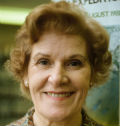 Joan Cox – General Assistant / Editor of Transglobe ‘Club’ Newsletter
Joan Cox – General Assistant / Editor of Transglobe ‘Club’ Newsletter
In February 1978 Ran phoned Joan at the HQ National Trust, where she was working as a volunteer, to ask if she could type a report on his proposed Transglobe Expedition for submission to the Royal Geographical Society. The report wasn’t accepted, but she stayed around to do the next one and to help Anton Bowring with letters to potential sponsors. Joan’s regular visits to the Transglobe offices in the Duke of York’s Barracks, Chiltern Street and Brentford continued until 1983! In the early days Joan even assisted with weighing out dried potato, milk and sugar and bagging them for inclusion in ration boxes!
Joan’s key role, however, has been the setting up and administration of the Transglobe Expedition Club – a means of informing and updating friends, family and schools on the progress of the expedition. In August 1979 an approach to the Government printer produced typed labels for all the schools in the Home Counties which were then used to send the three Transglobe wallcharts to the Head Teachers, along with an application form to join the Club. The Club’s first newsletter went out to members in 12 countries in November 1979 and the 24th and last was despatched in July 1983.
 Margaret Davidson – General Assistant
Margaret Davidson – General Assistant
Margaret joins the Transglobe office administrative team from the nearby First Aid Nursing Yeomanry (FANYS) office which is in the next door building to Transglobe’s Duke of York’s Barracks headquarters in the King’s Road, Chelsea. Margaret helps with general clerical duties and typing. see Obituary
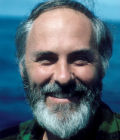 Col Paul Clark USAF Retd. – Ship’s crew / Merchandising
Col Paul Clark USAF Retd. – Ship’s crew / Merchandising
Paul Clark was working as Air Attaché at the United States Embassy in London when he heard about the Transglobe Expedition. He gave up his job to join the MV Benjamin Bowring’s crew as a deckhand and sailed on the original voyage from Halifax, Nova Scotia to London. Paul remained as permanent crew until the ship returned to Cape Town from Antarctica. Thereafter he took on merchandising from the London office and worked on the production of expedition souvenirs (see Shop).
 Executive Committee / Board of Directors
Executive Committee / Board of Directors
Rear-Admiral Sir Edmund Irving, KBE CB Chairman (1979 – 1982); Mr. Peter Bowring Chairman (1982); Sir Campbell Adamson; Mr. G.C.C. Capon; Colonel N.A.C. Croft, DSO OBE; Sir Alexander Durie, CBE; Sir Ranulph Fiennes; Sir Vivian Fuchs, FRS; Mr. S.A.G.L. Gault, LLB; Mr. G. Greenfield; Mr. Tim Halford; Mr. A.D. Macaulay; Colonel R.T.S. Macpherson, CBE MC TD; Mr. Peter Martin; Mr. J.P. Peevey; Captain C.T. Pitt, OBE; Mr. A. Tritton; Mr. P.D. Windeler; Brigadier W.M. Wingate Gray, OBE MC; Captain T.E. Woodfield, OBE
Transglobe’s London administration, presided over by an Executive Committee, was accommodated for more than two years in Tarmac International’s office in International House, not far from Baker Street Underground Station. More recently it has moved to their premises in Westlink House in Brentford, and there it will remain (thanks to the sponsorship of that firm) until March, 1983. Tarmac have not only provided free office space, but have also covered the cost of telephones, telex, photocopying and stationery throughout.
Chairman of the Executive Committee was Rear Admiral Sir Edmund Irving, past President of the Royal Geographical Society. The Experts on his committee included Sir Vivian Fuchs, Colonel Andrew Croft, Sir Alexander Durie, Sir Campbell Adamson, Mr. Alan Tritton, Captain Tom Woodfield, Mr. George Greenfield, Mr. Simon Gault, CoIonel Tommy Macpherson, Mr. Peter Martin, Mr. Tim Halford, Mr. Peter Bowring and Captain Colin Pitt.
Overall commander of the Expedition was Brigadier Mike Wingate Gray, who also sat on the Executive Committee which met, on average, once every month.
Reporting to the Executive Committee have been a number of other Committees, each dealing with a specific subject. The Export Promotion Advisory Committee was at the outset chaired by Lord Hayter of the Chubb Group. On his retirement, his place was taken by Mr. Jim Peevey, Public Affairs Officer of Mobil. This Committee supervised arrangements for the trade exhibitions, and more recently was responsible for receptions and promotions in London.
The other Committees have advised on Appeals, Public Relations and Merchandising, and the activities and organisation of the Benjamin Bowring and the Chubb Twin Otter aeroplane.
The Expedition Secretary is Anthony Preston, who is paid a salary by sponsors Dr. Armand Hammer and Commercial Credit Services, and his PA is Janet Cox, whose salary is also sponsored by Mr Tony Dutton. All the other members of the staff – Roger Tench, who organises the photographic library, Joan Cox, who looks after the Transglobe Club, Colin Eales, the public relations officer, and Margaret Davidson and Muriel Dunton who give part-time clerical help, are unpaid volunteers. More recently also retired USAF Colonel Paul Clark gave up his role as a member of the Benjamin Bowring’s crew to take over marketing operations and to raise funds for publicity and incidental expenses.
Periodically lurking in the remotest corner of the London headquarters and usually sucking a pipe one sometimes finds David Mason, first ice reserve. He emanates an aura of dangerously repressed energy, and periodically disappeared in a djinn-like cloud of smoke to organise and deliver supplies to the ice team or base camp. During the past three years his face has turned up in photographs from surprising places like Station Nord, Thule and the North Pole.
